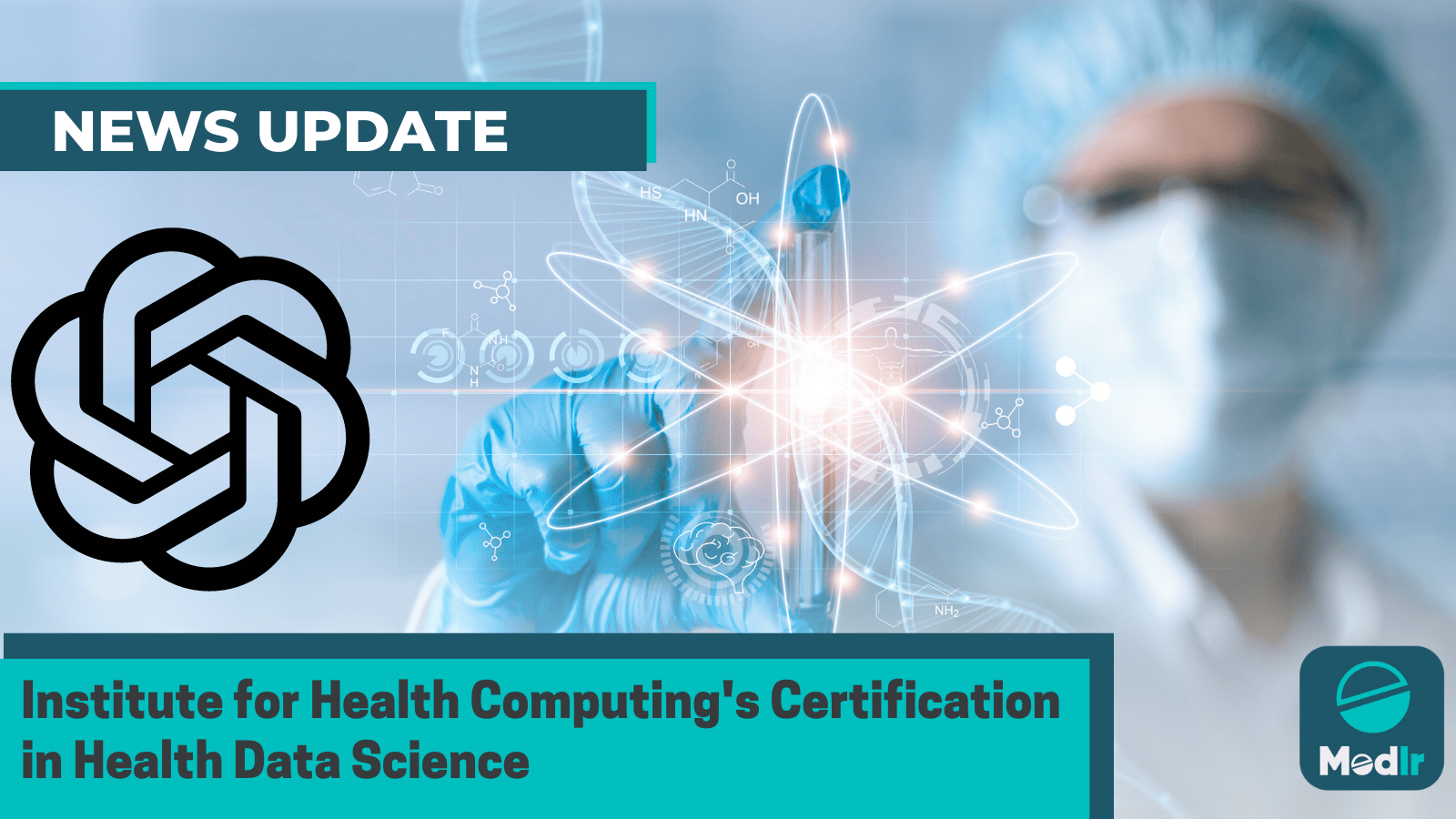Institute for Health Computing's Certification in Health Data Science
Written by Shaveta Arora, Arushi Sharma
Discover how AI is revolutionizing healthcare education at IHC. Dr. Goodman's role focuses on training healthcare providers in cutting-edge technologies.

Artificial intelligence systems like ChatGPT are revolutionizing medicine by integrating into healthcare. However, doctors face challenges adapting to clinical decision support (CDS) algorithms, which aid in crucial decisions like antibiotic prescriptions and high-risk heart surgery.
Physicians' interpretation and action based on risk predictions are crucial for the success of new technologies. A perspective article from UMSOM reveals that many physicians lack the unique skills needed for this purpose.
Using Artificial Intelligence In Medicine
CDS algorithms predict clinical outcomes using regression-derived risk calculators, advanced machine learning, and artificial intelligence systems.
Predicting scenarios like life-threatening sepsis risk and heart disease therapy aversion can help identify patients at high risk and determine the most effective treatment.
"These new technologies have the potential to significantly impact patient care, but doctors need to first learn how machines think and work before they can incorporate algorithms into their medical practice,"
said Daniel Morgan, MD, MS, Professor of Epidemiology & Public Health at UMSOM and co-author of the perspective.
Although certain clinical decision support tools are already integrated into electronic medical record systems, health care providers frequently encounter the present software as unwieldy and challenging to use.
Katherine Goodman, JD, PhD, Assistant Professor of Epidemiology & Public Health at UMSOM and co-author of the perspective said -
"Doctors don't need to be math or computer experts, but they do need to have a baseline understanding of what an algorithm does in terms of probability and risk adjustment, but most have never been trained in those skills."
Shift In Doctor's Practice
To bridge this gap, medical education and clinical training should actively include comprehensive instruction on probabilistic reasoning tailored specifically to CDS algorithms. Drs. Morgan, Goodman, along with their co-author Adam Rodman, MD, MPH, from Beth Israel Deaconess Medical Center in Boston, have put forward the following proposal:
Improve Probabilistic Skills
During the initial stages of medical school, students ought to grasp the foundational elements of probability and uncertainty. They should employ visualization techniques to foster an intuitive grasp of probability. This training must encompass the interpretation of performance metrics such as sensitivity and specificity, which aids in comprehending test and algorithm effectiveness.
Include Algorithmic Output
Medical practitioners need instruction in critically assessing and effectively utilizing CDS predictions within their clinical decision-making processes. This training encompasses comprehending the operational context of algorithms, identifying their constraints, and taking into account pertinent patient factors that the algorithms might not have considered.
Interpreting CDS Predictions
Medical students and physicians can partake in practice-based learning by implementing algorithms for individual patients and analyzing how diverse inputs impact predictions. Additionally, they should develop skills in effectively communicating with patients regarding decision-making guided by CDS.
The Institute for Health Computing (IHC) was established jointly by the University of Maryland, Baltimore, UMCP, and UMMS.
The UM-IHC aims to develop a cutting-edge learning healthcare system using artificial intelligence and network medicine to improve disease diagnosis, prevention, and treatment in digitized medical health data.
Dr. Goodman is commencing a role at IHC, an institution focused on educating and training healthcare providers about the latest technologies. The Institute envisions providing a certification in health data science, along with other formal educational prospects in the field of data sciences, as part of its future offerings.
UMSOM Dean Mark T. Gladwin, MD, Vice President for Medical Affairs, University of Maryland, Baltimore, and the John Z. and Akiko K. Bowers Distinguished Professor said -
"Probability and risk analysis is foundational to the practice of evidence-based medicine, so improving physicians' probabilistic skills can provide advantages that extend beyond the use of CDS algorithms. We're entering a transformative era of medicine where new initiatives like our Institute for Health Computing will integrate vast troves of data into machine learning systems to personalize care for the individual patient."